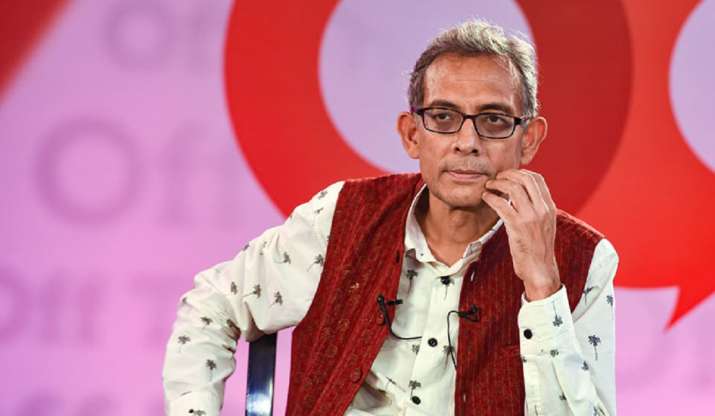
Third wave of COVID could drag GDP growth to 7%: Economist Abhijit Banerjee
Nobel laureate economist Abhijit Vinayak Banerjee on Thursday feared that the impending third wave of the COVID-19 pandemic could adversely affect GDP, and its growth rate could go down to 7 per cent, down from the IMF’s recent estimate of 9.5 per cent. .
Banerjee, who heads the Global Advisory Board (GAB) of West Bengal and advises the state government on issues related to the pandemic, said that boosting the state’s economy is directly related to the revival of the country’s economy as it is facing the ongoing crisis. Under stress due to the pandemic. Situation.
‘Economy is running at a slow pace due to the situation of Kovid. Earlier, the IMF had said that GDP growth would be 12.5 percent. Now it is saying that it will be 9.5 per cent. I am apprehensive that it may come down to 7 per cent. Another wave will reduce it further. If the economy of the country does not improve, then the state alone will not be able to progress.
Last month, the International Monetary Fund (IMF) slashed its economic growth forecast for India to 9.5 per cent for the fiscal year to March 31, 2022, as the start of a severe second COVID-19 wave cut into the recovery pace. .
This forecast for 2021-22 is lower than the 12.5 per cent growth in GDP that the IMF had forecast before the second wave hit in April. For 2022-23, the IMF expects economic growth of 8.5 percent, up from 6.9 percent projected in April.
“But I am apprehensive that eventually it may come down to 6 per cent to 7 per cent. I cannot give it in writing. But if another wave comes, it may fall further. I hope that doesn’t happen,” he said.
Banerjee said that the economy of West Bengal is also linked to the country.
If the country’s economy does not improve, Bengal alone will not be able to do anything. If the economy of the whole country is active then it will have an impact.
‘Many Bengalis work in other states. There is a lot of income from migrants. We cannot solve this problem alone. When the economy of the country opens, it will pull us. The state government is certainly trying to help, but the problem will be solved only when the country’s economy recovers,’ Banerjee said.
The renowned economist said that the Center should be more into free-spending policies like other economies in Europe and America, rather than being more concerned about balancing the deficit and budget.
‘The (Union) government has a fiscal problem, and may have more confidence in balancing the budget than in free spending policies. The government is trying to use a tool it has because other forms of tax collection aren’t necessarily keeping pace, as the economy slows. He is using it to balance the budget.
But this is not the direction the government should not have taken, Banerjee said.
‘I think the government should have been more open-handed with spending. I have said this many, many times. I think the central government is unwilling to do what the US or European economies are doing – printing and spending money. And I think it would have been a better policy in the present context,’ the economist said.
However, Banerjee praised the Center for moving in this direction.
“Inflation is already on the rise due to high fuel prices. I think there is a good case for being more open handed. But to be fair, the central government has now moved in that direction and announced several relaxations. I think it may be the right strategy to keep the deficit low,’ said the Nobel laureate.
(with PTI inputs)
Read also: Retail inflation for industrial workers rises to 5.57% in June
.